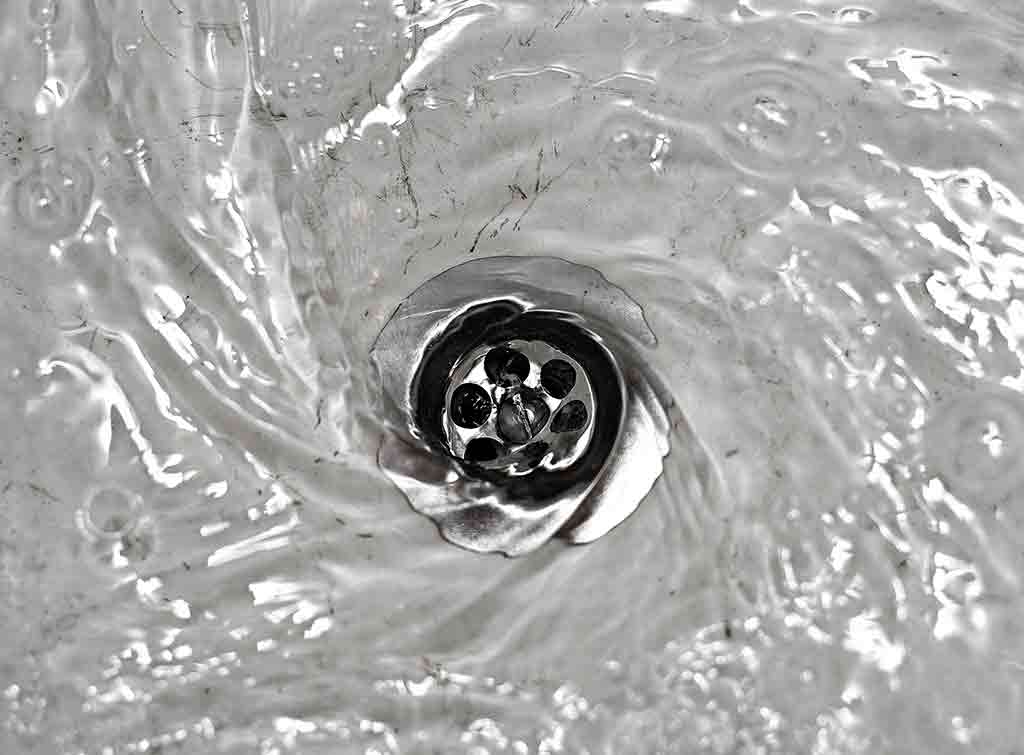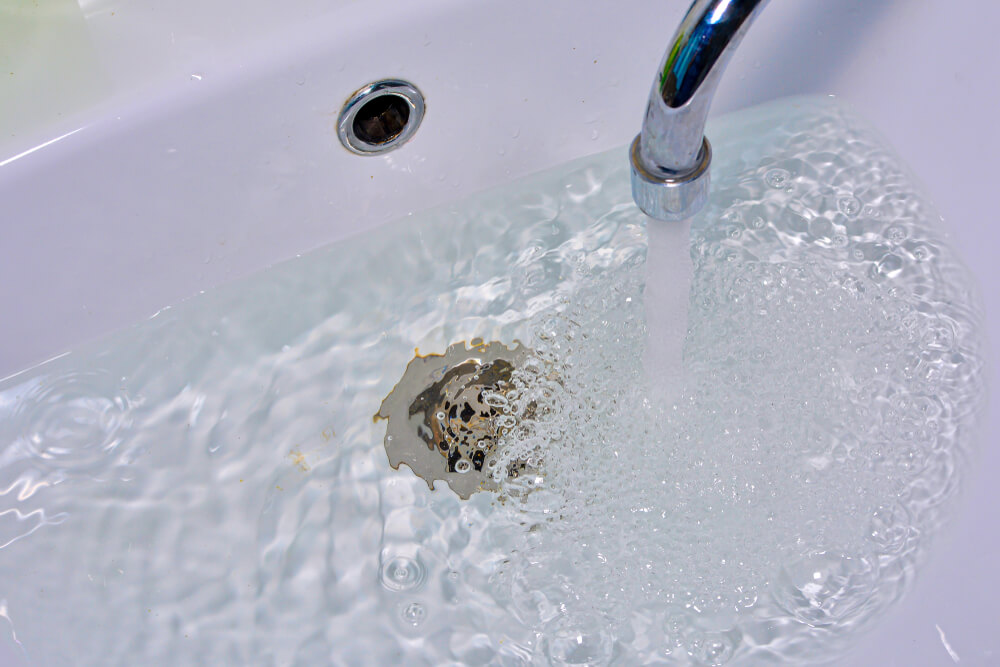Practical Tips For Repairing A Slow-Draining Sink
Practical Tips For Repairing A Slow-Draining Sink
Blog Article
Have you been hunting for content concerning Three Common Ways to Fix a Slow Drain?

Introduction
We have actually all been there: You're cleaning your teeth or washing your hands, and you see the water pooling in the sink. Rather than quickly swirling away, it lingers, turning your once-refreshing morning regimen into a mini overload scene. A slow-draining sink isn't just aggravating; it's often a sign of bigger pipes issues hiding below the surface. Fortunately is that most slow-draining sinks can be repaired with a little knowledge, a couple of fundamental devices, and some perseverance. All set to tackle this task head-on? Let's roll up our sleeves and dive right in.
Understanding the Root Causes Of a Slow-Draining Sink
Before you begin poking around in your pipes, it assists to understand what may be creating the stagnation. Recognizing the source makes it much easier to select the best repair.
Tools and Products You'll Need
The right tools make all the distinction. Thankfully, you will not require a completely stocked plumbing technician's van to do the job.
Step-by-Step Overview to Taking Care Of a Slow-Draining Sink
Now, let's enter into the nitty-gritty. This step-by-step procedure will certainly direct you via easy methods to recover your sink's drainage.
Step 1: Get Rid Of and Clean the Stopper
Usually, the stopper (that small plug you push down to obstruct water) is the initial offender. Remove it meticulously and wipe any hair or crud entraped around its base. Wash it thoroughly before putting it back in place.
Action 2: Make Use Of a Bettor to Displace Particles
Got that bettor all set? Setting it over the drain and provide it a couple of company pumps. The concept is to create suction that can loosen any kind of clog. If you see littles debris drifting up, you get on the right track.
Action 3: Attempt a Drain Snake or Wire Hanger
If the bettor does not work, it's time to draw out the drainpipe snake. Carefully feed it into the drainpipe and twist as you go. You may feel some resistance-- that's likely the obstruction. Maintain twisting and drawing up until you remove the blockage. If you don't have a drain serpent, a corrected wire wall mount can operate in a pinch.
Step 4: Use a Do It Yourself Drainpipe Cleaner
An all-natural cleaner made from cooking soda and vinegar can break down residual gunk. Put half a mug of baking soda into the drainpipe, complied with by half a cup of vinegar. Allow it fizz for around 15 minutes, after that flush with hot water. This chain reaction typically does wonders for minor obstructions.
Tip 5: Reassemble and Evaluate the Sink
Put every little thing back with each other and run the tap. Does the water currently swirl away at a commendable speed? If yes, offer yourself a pat on the back. Otherwise, do not despair-- there are still a few more tricks up your sleeve.
Important Devices for Do It Yourself Fixes
A plunger is your best starting point. A tiny, sink-sized bettor produces suction that can dislodge small blockages. For more relentless blockages, a drainpipe snake (sometimes called a plumber's auger) functions marvels. A pair of handwear covers, a flashlight, and perhaps a set of protective goggles are additionally helpful.
Recommended Cleaning Solutions
Moderate dish soap and hot water can aid break down oily build-up. A combination of baking soda and vinegar is a reliable natural home remedy, and chemical cleansers offer a more green approach. Keep chemical drain cleansers as a last resort, as they can be harsh on your pipes.
Common Offenders Behind Slow Drain
So, what's blocking things up? Generally, it's a mix of everyday debris-- assume hair, soap residue, toothpaste deposit, and remaining food bits. With time, these tiny bits accumulate and cling to the pipe walls, slowly narrowing the flow and making it harder for water to go through. In some cases, natural resource from difficult water can also add to the substance, producing the best tornado for stubborn obstructions.
When is it Time to Do Something About It?
If you observe the water draining pipes slower than typical, it's a great idea to step in quicker rather than later on. Waiting too long might result in finish obstructions, undesirable odors, or perhaps pipeline damages. If the water takes more than a few seconds to clear out after turning off the faucet, consider it a warning and get ready to put on your DIY hat.
Security First: Preventative Measures and Prep work
Prior to you launch into unclogging setting, think about safety. You're taking care of possibly dirty water and debris, so slip on a pair of handwear covers. If you're making use of chemical cleansers, make sure the space is well-ventilated and comply with the guidelines on the tag.
Safety Equipment and Office Configuration
Set some old towels or dustcloths around the sink area to capture dashes. Remove any things that may enter your method, like soap dispensers or toothbrush owners. Make certain you have good lighting-- grab a flashlight if required.
Alternative Techniques for Stubborn Clogs
Not all blockages are developed equivalent. If your sink still declines to coordinate, take into consideration these different services.
Baking Soda and Vinegar Approach
We already discussed this, however it deserves keeping in mind once more. This mild, environment-friendly technique is safer than chemical cleaners and typically rather efficient.
Enzymatic Drain Cleansers
Enzyme-based cleansers use natural microorganisms to digest organic matter. They're an excellent selection if you're aiming to avoid severe chemicals. Simply bear in mind, they might take a bit longer to work their magic.
Chemical Drain Cleaners: Advantages And Disadvantages
Chemical cleaners can blow up with difficult obstructions quick, yet they're not without downsides. They can generate warmth and fumes, damage pipelines if utilized exceedingly, and pose ecological risks. Utilize them moderately, and always comply with the instructions meticulously.
Safety Nets to Keep Your Sink Flowing
Prevention is the very best treatment. By adopting a few basic behaviors, you can keep your sink from slowing down in the first place.
Routine Cleansing Habits
Clean down the sink basin and component location on a regular basis. Eliminate hair or food bits prior to they have a possibility to wash down the drainpipe.
Preventing Harmful Substances Down The Tubes
Reconsider prior to unloading coffee premises, oil, or fibrous veggie scraps down the sink. These wrongdoers cling to pipe wall surfaces, creating blockages gradually.
Regular Upkeep Checks
Schedule a quick regular monthly examination. Run warm water via the sink for a couple of minutes, focusing on the flow. If it appears slow-moving, act fast before it ends up being a full-on obstruction.
When to Call a Professional Plumbing Technician
Often, despite exactly how difficult you try, that obstruct simply won't budge. That's when it's time to generate the pros.
Indicators That Suggest a More Major Issue
If your sink drains pipes gradually regardless of numerous attempts, or if you see water supporting in other fixtures (like your shower or bathroom), you might have a more severe plumbing problem hiding deeper in the system.
Balancing DIY Efforts with Expert Assistance
While do it yourself can conserve you money and use a sense of achievement, there's no embarassment in calling an expert. An expert plumber can analyze your whole plumbing setup, making certain there's no underlying damages or lasting trouble that could cost you more later on.
Comparing Prices and Long-Term Solutions
Before making a decision, consider the big picture. A low-cost, quick fix might address the problem briefly, however purchasing a more irreversible option could conserve you cash and stress and anxiety over time.
Evaluating the Expenses of DIY vs. Specialist Repairs
DIY repairs often set you back little more than the cost of a bettor or a bottle of cooking soda. Professional services, on the other hand, included a price tag but may avoid repeated issues and pricey fixings later.
Buying Top Quality Fixtures and Upgrades
If your sink's design adds to constant obstructions, it may be worth upgrading to higher-quality components or altering the pipes layout. Consider this a financial investment in your house's performance and convenience.
Verdict
A slow-draining sink can feel like a small irritability, however it's frequently an indication that your pipes needs a little TLC. By comprehending the source, using the right tools and methods, and dedicating to straightforward preventive measures, you can maintain your sink streaming openly. And when all else fails, never ever think twice to hire a professional-- your home's pipes deserves the financial investment in treatment and maintenance.
Three Common Ways to Fix a Slow Drain
Baking Soda Method
Boil a full pot of water. Measure out cup of baking soda and pour it down the drain. Then take cup of the magical cleansing substance known as white vinegar and drop that down there too. Allow the mixture to fizz in the drain for five minutes as the vinegar and baking soda combine. Now dump in that whole pot of boiling water. This combination of cleaning substances should clear out anything that is causing your sink to drain slowly. If it doesn t...
Zip-It
If the baking soda method doesn t clear out your drain, it may be because a significant amount of hair and/or other debris has collected there and you need to remove it. Purchase a Zip-It tool at any home improvement or hardware store and insert it into your drain. It will catch any collected hair or debris that s blocking the flow of water. Pull it out. If it s got a big clump of hair, etc. on the end, you ve probably got your culprit.
Drain Cleaner
If these methods don t work, there is the standard drain cleaner that you can also buy in a hardware store or even your local grocery store. It s better if you can use a household solution, but these drain cleaners often work in a pinch. They re very simple to use. You generally just dump them in your drain and wait. If even this method is not effective, it may be time to call the plumber.
https://www.mrrooter.com/oneida/about-us/blog/2017/july/three-common-ways-to-fix-a-slow-drain/

Do you really like reading about Three Common Ways to Fix a Slow Drain? Post a comment down the page. We'd be pleased to find out your opinions about this post. In hopes to see you back again before long. Remember to take a moment to distribute this entry if you enjoyed it. Bless you for your time. Please stop by our website back soon.
Call Today Report this page